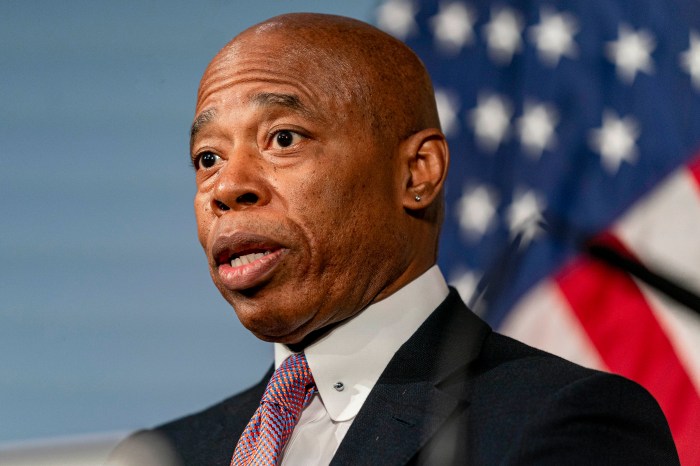Washington City Council passes broad rights program; congressional response awaited
Last week, during a meeting most notable from the mainstream media’s perspective for the passage of a bar and restaurant smoking ban, the 13-member Washington, D.C. City Council unanimously okayed one of the nation’s most comprehensive and far-reaching domestic-partnership ordinances.
The Domestic Partnership Equality Act of 2005 grants registered D.C. partners an impressive range of benefits and obligations. The law gives full inheritance rights to registered partners and their children, prevents partners from being compelled to testify against one another in court, ensures their rights to make medical decisions for each other, and grants them legal standing to sue in wrongful death cases.
The statute also adds several marriage-like obligations to domestic partnerships. Either partner can be held responsible for alimony and child support should the partnership dissolve. Each partner is also responsible for debts the other has accrued under home mortgages and property holdings.
Once signed by Washington. Mayor Anthony Williams, the law must, like all laws passed in the District, go to the U.S. Congress for a 30-day review. Any member of the House or Senate can then introduce a resolution of disapproval regarding a new city law. To over ride the D.C. law, the disapproval resolution must then go through the normal hearing process in committees, pass a floor vote, be approved by both the House and Senate, and be signed by the president within the 30-day review period. The 30-day window refers to “legislative days,” not business days. Since Congress rarely holds more than three legislative days a week, this 30- day period can easily last as long as three months.
In the past, rather than use the disapproval process to void local legislation it found objectionable, Congress has placed amendments on its D.C. appropriations bill. Even though the District collects taxes, the city’s annual budget is approved and disbursed by Congress as part of the yearly federal appropriations process.
Past amendments to the city’s annual appropriations have prohibited Washington, D.C. from forcing the Boy Scouts to accept gays after a ruling stating that requirement was passed by the city’s Human Rights Commission. A voter referendum that approved the use of medical marijuana a decade ago was stricken by Congress almost as soon as it passed. Congress has also continued to prohibit the city government from using funds on needle-exchange programs meant to curb the spread of HIV among intravenous drug users, as well as for any statehood lobbying. In 1981, Congress forced the District to maintain its anti-sodomy law, even though the City Council had voted to overturn it.
Last year, Williams refused to release an advisory opinion by D.C.’s attorney general, Anthony Spagnoletti, that reportedly indicated that the city’s laws do not prevent the recognition of same-sex marriages performed in other jurisdictions. The mayor chose not to make Spagnoletti’s analysis public for fear of drawing the attention of a Republican Congress bent on stopping same-sex marriage throughout the U.S. Williams feared Congress, in its zeal to ensure that the District never recognized same-sex marriage, would also pass legislation preventing domestic partnerships as well.
Just this year, when word leaked that Spagnoletti had informed a same-sex couple married in Massachusetts that such individuals at least had the “right” to jointly file their D.C. taxes, Senator Sam Brownback, a Kansas Republican, told the Washington Post, “I was hopeful we weren’t going to be confronting this issue. But it appears there will need to be a review and a discussion… This issue has now been moving across the country for several years, and I guess we will deal with something in D.C. now.”
Williams publicly acknowledged the controversy might also place the city’s budget in jeopardy.
Brownback’s office could not be reached for comment regarding the District’s new domestic partnership law.
The new statute is also notable for the provision that allows unmarried heterosexual couples and blood relatives to join in domestic partnerships. Of all the states with a domestic partner law, only Hawaii and Maine allow any opposite-sex couple to register as domestic partners, but neither state defines obligations such as alimony and child support. Other states that do allow heterosexual domestic partners—California and New Jersey being examples—require at least one of the partners to be over 62 years old, the goal being to allow senior widows and widowers to enter into partnerships without losing survivor benefits from their marriages. Hawaii is the only state that allows blood relatives to register.
Washington, D.C. has a higher percentage of gay couples living together than any other city except San Francisco, according to 2000 Census data.
gaycitynews.com

































